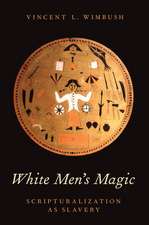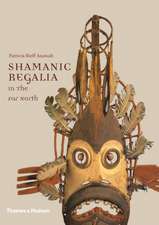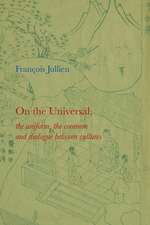Modern Capitalist Culture, Abridged Edition
Autor Leslie A Whiteen Limba Engleză Paperback – 31 aug 2009
Preț: 359.42 lei
Nou
Puncte Express: 539
Preț estimativ în valută:
68.82€ • 70.99$ • 57.04£
68.82€ • 70.99$ • 57.04£
Carte disponibilă
Livrare economică 31 ianuarie-14 februarie
Preluare comenzi: 021 569.72.76
Specificații
ISBN-13: 9781598741582
ISBN-10: 1598741586
Pagini: 212
Dimensiuni: 152 x 229 x 10 mm
Greutate: 0.27 kg
Ediția:Prescurtată
Editura: Taylor & Francis
Colecția Routledge
Locul publicării:Oxford, United Kingdom
ISBN-10: 1598741586
Pagini: 212
Dimensiuni: 152 x 229 x 10 mm
Greutate: 0.27 kg
Ediția:Prescurtată
Editura: Taylor & Francis
Colecția Routledge
Locul publicării:Oxford, United Kingdom
Cuprins
Chapter 1 Introduction: The Nature Of Capitalist-Democratic Culture; Chapter 2 The United States: From Colonial Times to World War I; Chapter 3 Jungle Capitalism; Chapter 4 The State-Church and Ethics in Capitalist-Democratic Society; Chapter 5 Class Structure and Class Relations In the United States: Capital and Labor; Chapter 6 Government and Free Enterprise: Small Business, Big Business, and Subsidies; Chapter 7 The Social Organization and Control of Wealth: Socialization, Distribution, and Income; Chapter 8 From Laissez Faire to Welfare;
Notă biografică
Leslie A. White, Burton J. Brown, Benjamin Urish, Robert L. Carneiro, Benjamin Urish
Descriere
This lost classic by Leslie A. White represents twenty-five years of his scholarship on the anthropology of modern capitalism. Drawing out his now classic formulations of social organization, cultural evolution, and the relationship between technology, ecology, and culture, this major theoretical work traces a vast expanse of history from the earliest forms of capitalism to the detailed inner workings of contemporary democratic institutions. The abridged version of Modern Capitalist Culture delivers all of White’s major arguments in a clear and concise manner. A substantial foreword by Burton J. Brown, Benjamin Urish, and Robert Carneiro both situates this posthumous work within the history of anthropological theory and shows its importance to contemporary debates within the discipline.













